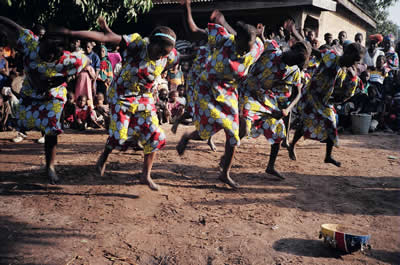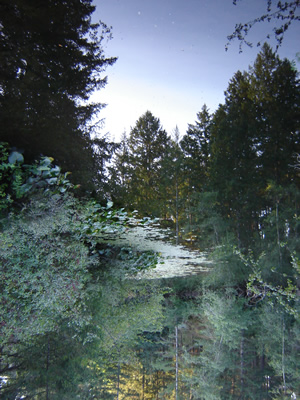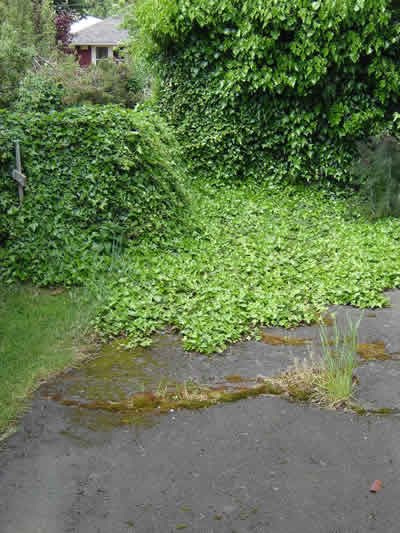Normally we think of culture as human culture, the artifacts and interactions of human society and creativity. It is easy in the civilized world to forget the basis of human culture in nature. That denial is now being put to the test, as environmental issues dovetail with an untenable financial system to present a crisis of millennial proportions. Will we all be thrown back abruptly to a more fundamental relationship with ever-present but rapidly degrading nature? While the question hovers, many are exploring again or anew how to begin making constructive moves in that direction. What does a sustainable lifestyle look like in the 21st century? We have plenty of models from the past to go on - the Inuit, Bushmen, or Aborigines offering examples to recent times of roughly sustainable ways of life that demonstrate success without modern technology. To examine other aspects of culture besides the central requirements of food gathering and shelter, supplies and transportation, is perhaps beside the point; as those secondary needs might be considered frills, optional variations. On the other hand, maybe the whole of a culture must be considered when evaluating "what works." Maybe the music of the Mande peoples of West Africa really is necessary to maintain cultural success in their geographic context. The same might be said of the Inuit shaman and the associated set of taboos; or - who knows? - even of the custom of circumcision (though I would like to think this practice could be left behind in any sustainable culture of the future).
What does a sustainable lifestyle look like in the 21st century? We have plenty of models from the past to go on - the Inuit, Bushmen, or Aborigines offering examples to recent times of roughly sustainable ways of life that demonstrate success without modern technology. To examine other aspects of culture besides the central requirements of food gathering and shelter, supplies and transportation, is perhaps beside the point; as those secondary needs might be considered frills, optional variations. On the other hand, maybe the whole of a culture must be considered when evaluating "what works." Maybe the music of the Mande peoples of West Africa really is necessary to maintain cultural success in their geographic context. The same might be said of the Inuit shaman and the associated set of taboos; or - who knows? - even of the custom of circumcision (though I would like to think this practice could be left behind in any sustainable culture of the future).
 In the moment, I am satisfied with my cheese-and-beet sandwich, brought to this lakeside in a handy plastic container, with a jar of green tea, computer to write with, flutes to play, cell phone to talk with a friend. The ducks are my company now, as I have brought other food products to tide me over in this place. Take away the grocery store cheese and bakery bread, and I am left with the beets and a lust for protein that those poor ducks will have to fend off. More likely, they laugh at the poor human who gazes at them longingly from the shore, lacking ammo or arrows, nets or help from the opposite shore. This survival business is no simple enterprise, and hardly a matter for one man to attempt to vision and dream his way through. It is a collective enterprise, to which the visions and dreams of each have relevance. Collectively we will face again as we once did consciously, the question of how to provide. Today the veils of complacency and denial are wearing thin, as the systems we have built or allowed to be built to stand between us and our daily bread, are tottering.
In the moment, I am satisfied with my cheese-and-beet sandwich, brought to this lakeside in a handy plastic container, with a jar of green tea, computer to write with, flutes to play, cell phone to talk with a friend. The ducks are my company now, as I have brought other food products to tide me over in this place. Take away the grocery store cheese and bakery bread, and I am left with the beets and a lust for protein that those poor ducks will have to fend off. More likely, they laugh at the poor human who gazes at them longingly from the shore, lacking ammo or arrows, nets or help from the opposite shore. This survival business is no simple enterprise, and hardly a matter for one man to attempt to vision and dream his way through. It is a collective enterprise, to which the visions and dreams of each have relevance. Collectively we will face again as we once did consciously, the question of how to provide. Today the veils of complacency and denial are wearing thin, as the systems we have built or allowed to be built to stand between us and our daily bread, are tottering.
read more: Nature, Culture and Spirit









